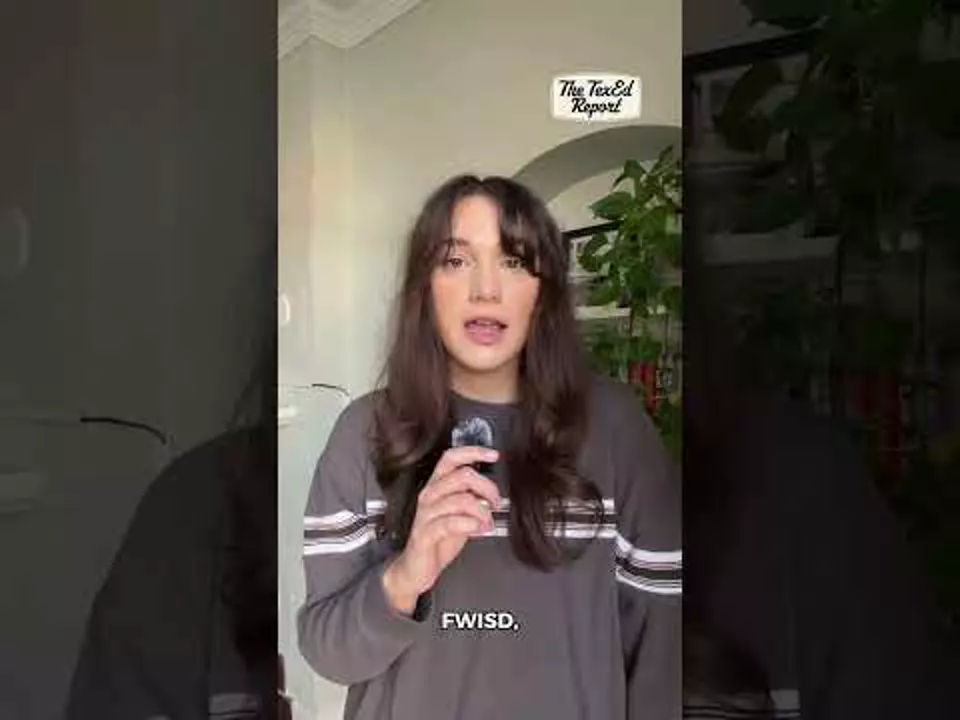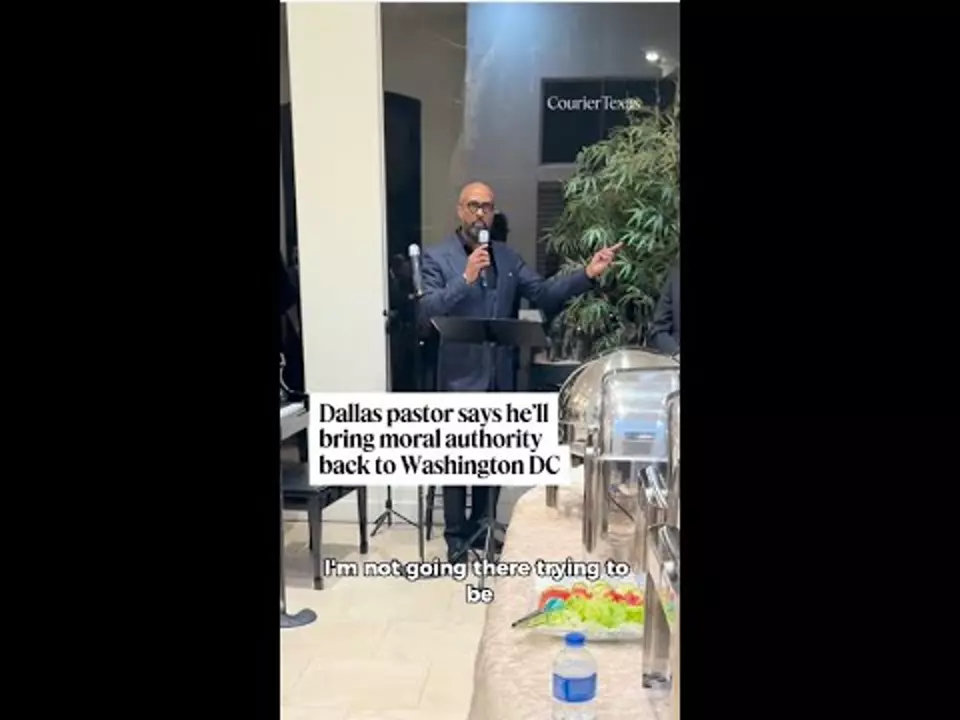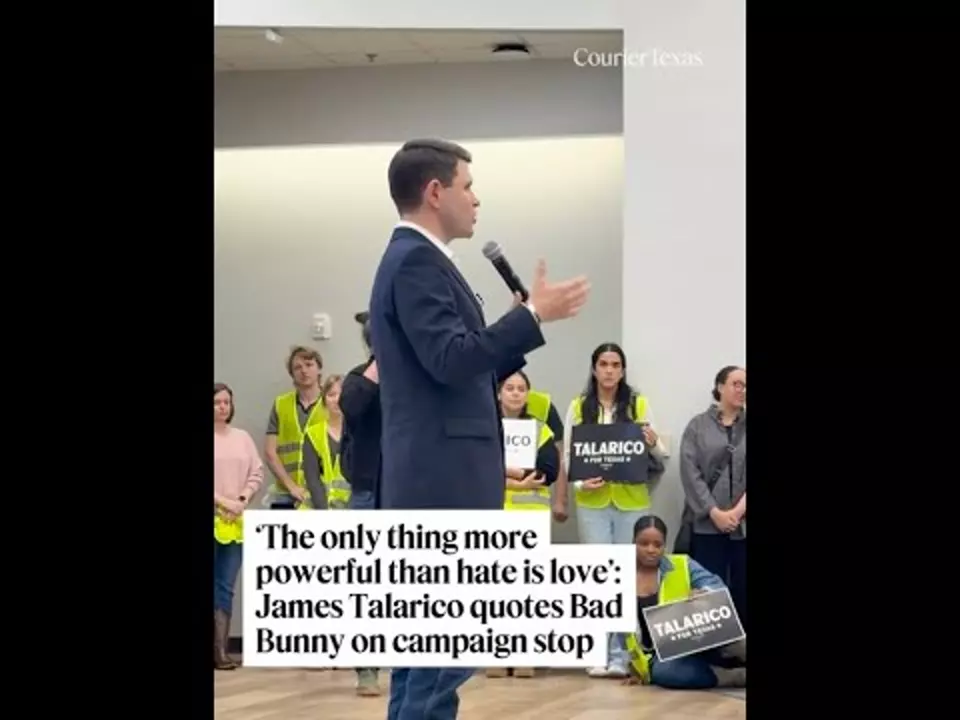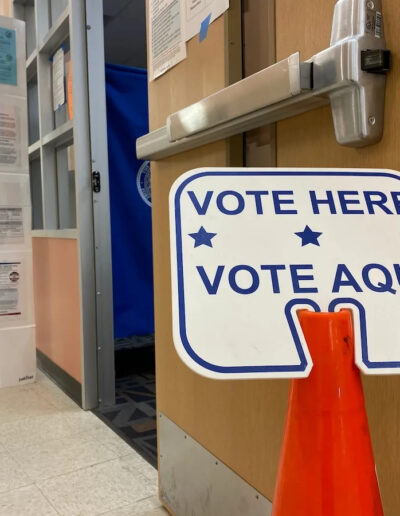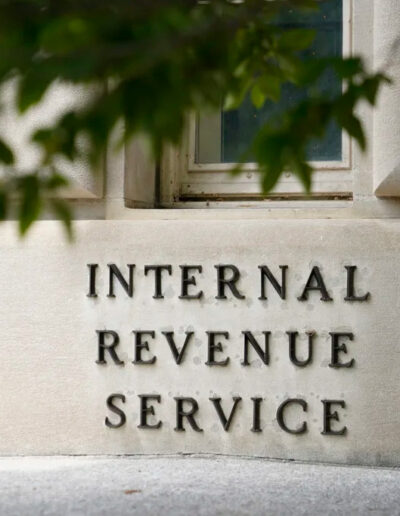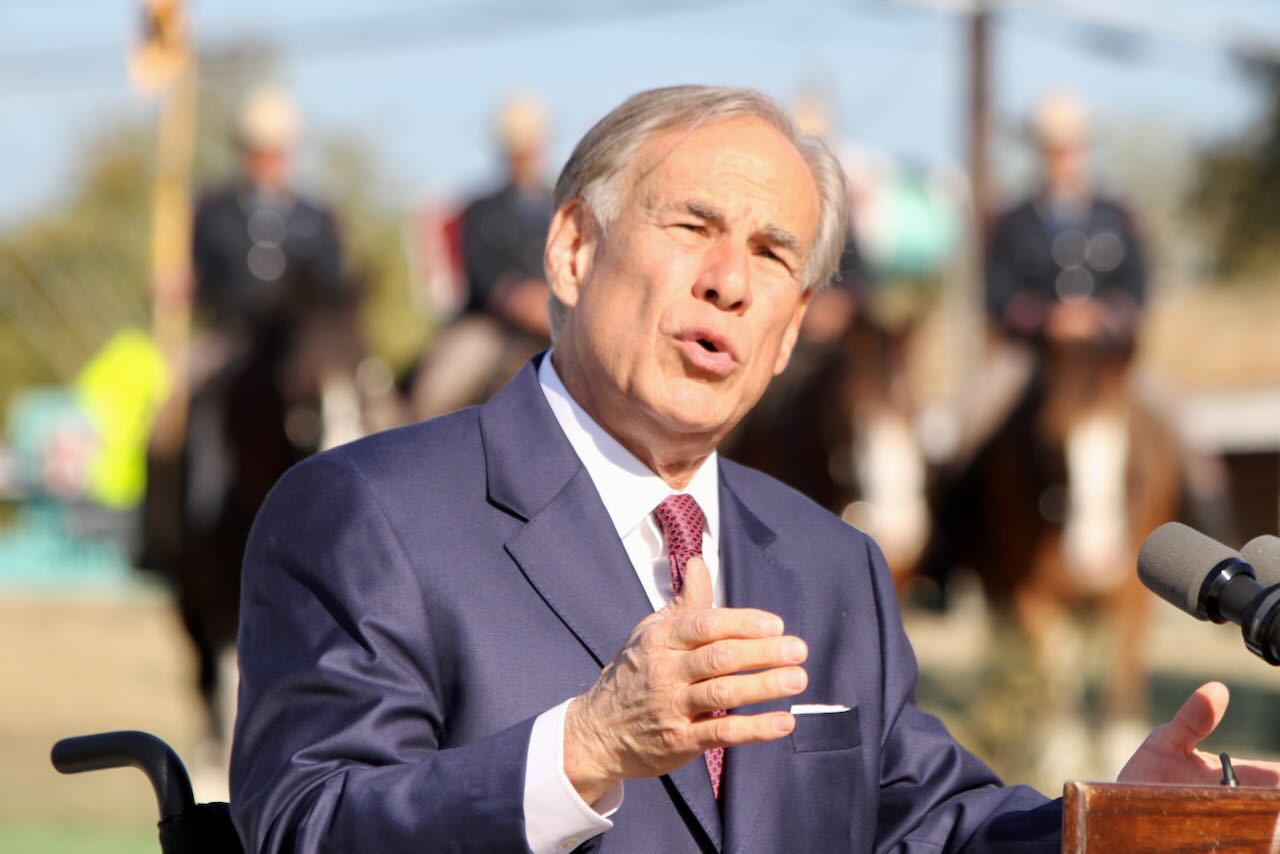
Gov. Greg Abbott applauded lawmakers in the Texas House for approving a school voucher plan, promising to “swiftly” sign the bill into law once it reaches his desk. (Photo by Matt Hennie)
Before the House approved school vouchers giving public funds for private schools, it passed a nearly $8 billion bill funding public education that provides the first per student funding increase since 2019.
The Texas House passed a historic $1 billion school voucher plan early Thursday, delivering a key legislative victory to Gov. Greg Abbott that’s eluded him for years.
Democrats in the House repeatedly tried to block or undermine the legislation, but after 10 hours of debate, they couldn’t push past a stark political reality — Republicans hold an 88 to 62 majority in the chamber.
The House passed its voucher bill with an 86-63 vote. Two Republicans — former House Speaker Dade Phelan and Rep. Gary VanDeaver — joined Democrats in voting against the bill.
The school voucher plan provides public funds for home school and private school students to spend on tuition and education-related materials. Democrats have blasted the proposal for not prioritizing students from low-income families and argued that it will subsidize the families with students already enrolled in private schools while diverting funds away from the state’s cash-strapped public school districts.
“Despite our best efforts and investments, not every student is best served at their local public school,” Rep. Brad Buckley, the Salado Republican and chair of the House Public Education Committee who authored the House voucher bill, said as debate on the bill started Wednesday afternoon.
“My intent is to provide students and families with the opportunity to choose the best possible educational setting for their child and I believe Senate Bill 2 provides this choice while prioritizing Texas’ most high needs and vulnerable students,” he added.
Abbott named school vouchers among his seven legislative priorities in February. Minutes after the House vote at about 2 a.m on Thursday, the governor called it “an extraordinary victory.”
“For the first time in Texas history, our state has passed a universal school choice bill out of both chambers in the Texas Legislature,” Abbott said in a prepared statement. “When it reaches my desk, I will swiftly sign this bill into law, creating the largest day-one school choice program in the nation and putting Texas on a pathway to becoming the best state in America for educating our kids.”
In the House bill, most vouchers for private schools would be 85% of what public schools receive in local and state funding per student, which is $10,330. Special education students would receive up to an additional $30,000 based on what the state would provide to a public school for special education services for that student. Home school students would receive $2,000 vouchers.
Some 80% of the vouchers would go to families based on an income limit tied to the federal poverty level, which for a family of four is about $160,000 per year. The other 20% of vouchers would have no income limit.
The voucher bill in the House faces a final vote — largely a formality — before being sent to the Senate. A conference committee of lawmakers from both chambers will then meet to iron out the differences between the two versions.
Under the Senate bill, which passed in February, vouchers for students attending a private school would be $10,000, or $11,500 if they have special needs. Most home school students could receive $2,000; those with special needs would receive $2,500.
Some 80% of the vouchers are set aside for public school students whose families earn below a certain income or students with a disability, while the remaining 20% of vouchers would be available to anyone and filled by a lottery. The restrictions for the 80% of recipients only apply if applications to the program outstrip funding.
For the 80% of voucher slots with restrictions, the Senate bill sets the income limit for families at 500% of the federal poverty rate. For a family of four, that’s about $160,000 per year.
Both bills call for the voucher program to start ahead of the 2026–27 school year.
Under either bill, the voucher funds could be spent on tuition and fees for private schools, higher education institutions, training for programs that offer industry-based certifications, instructional materials, educational services at public schools that don’t qualify for state funding, private tutoring, and educational therapies.
Yet in Dallas, a Courier Texas survey of more than 30 private high schools showed that the vouchers won’t cover the cost of tuition, which can top $30,000 per year.
During the debate on Wednesday, Democrats proposed 43 amendments to the legislation. They all failed.
The most high-profile effort came from state Rep. James Talarico, an Austin Democrat and former educator who’s been leading opposition to school vouchers in the House. He proposed an amendment that called for a statewide vote on school vouchers in November. Earlier in the week, House Democrats threatened to block all constitutional amendments this session unless the voucher proposal was put before voters.
“The governor has said private school vouchers are widely popular. If he’s telling the truth, I would think this referendum would have no trouble passing,” Talarico told lawmakers.
“Let Texans approve this measure. Let Texans get a say,” he added.
The House voted 86-62 to table Talarico’s amendment.
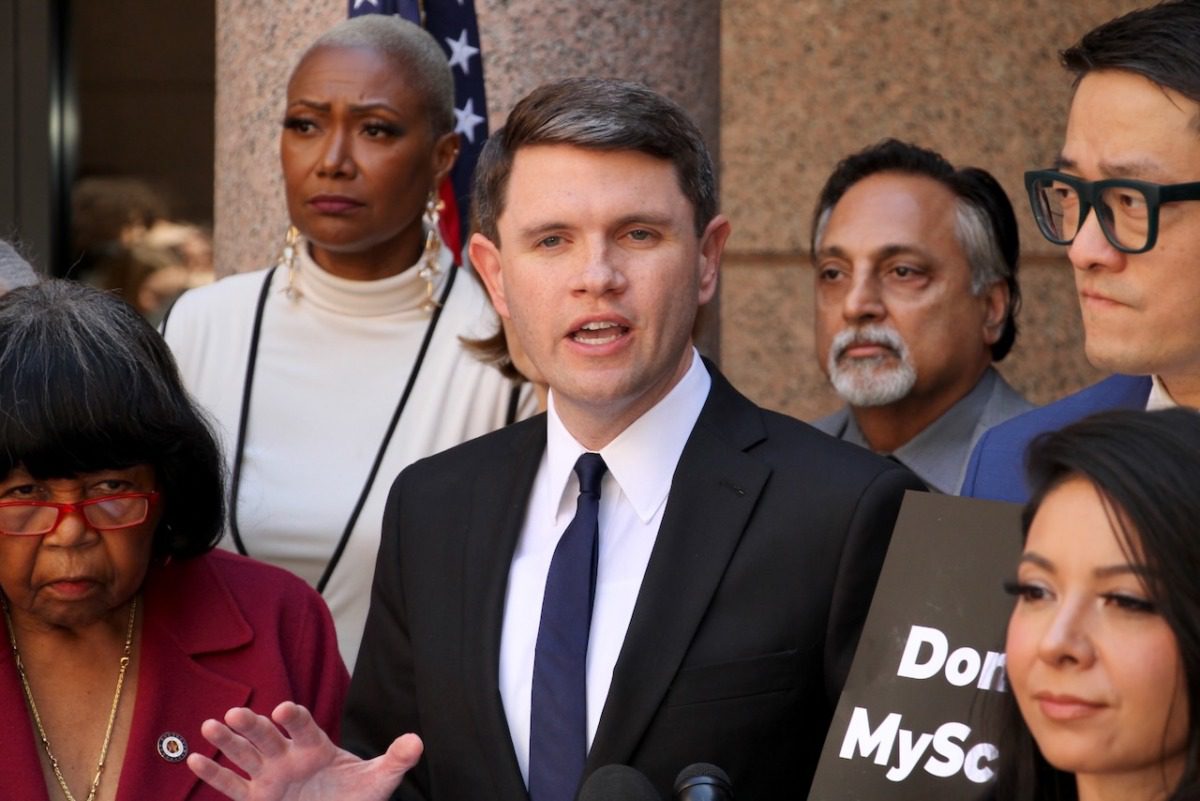
State Rep. James Talarico called for a public vote on school vouchers in November, but Republicans stopped it. (Photo by Matt Hennie)
Texas House approves $8 billion school funding bill
The House on Wednesday also gave initial approval to a school funding bill in a 144-4 vote. A final vote — like the voucher bill, a formality — still needs to take place.
House Bill 2 provides nearly $8 billion in funding for K-12 public schools in the state. Buckley called it “the largest investment in public education in the history of our state.”
“This is planting that seed to build our way back to making sure that our schools have the resources they need,” Buckley said during the hours-long debate over the measure.
But Democrats said the bill falls short of filling the funding gap that’s developed since 2019, which is the last time the GOP-controlled legislature increased public school funding. In recent years, school districts across the state have faced financial struggles and closed campuses.
House Bill 2 increases the basic allotment provided to schools per student by $395 — from $6,160 to $6,555; about a 6% increase — and links future increases to growth in property values. Currently, lawmakers must adjust the amount.
“With the first increase to their base state funding since 2019, our public schools can breathe a small sigh of relief. Emphasis on the small,” said Zeph Capo, president of Texas American Federation of Teachers, in a prepared statement. “The per-student funding increase is far below what is needed to make our schools whole.”
The bill also increases teacher salaries, limits the number of teachers without formal training, and revamps how schools are funded for special education.
Abbott, who blocked increased funding when his voucher plan failed in 2023, applauded the vote as “a monumental step.”
“The Texas House took a monumental step to increase education funding and teacher pay raises that puts Texas on the path to education excellence for our students,” Abbott said in a prepared statement after the vote.
Once the House gives the bill final approval, it goes to the Senate for consideration. The Senate passed school funding legislation in February.
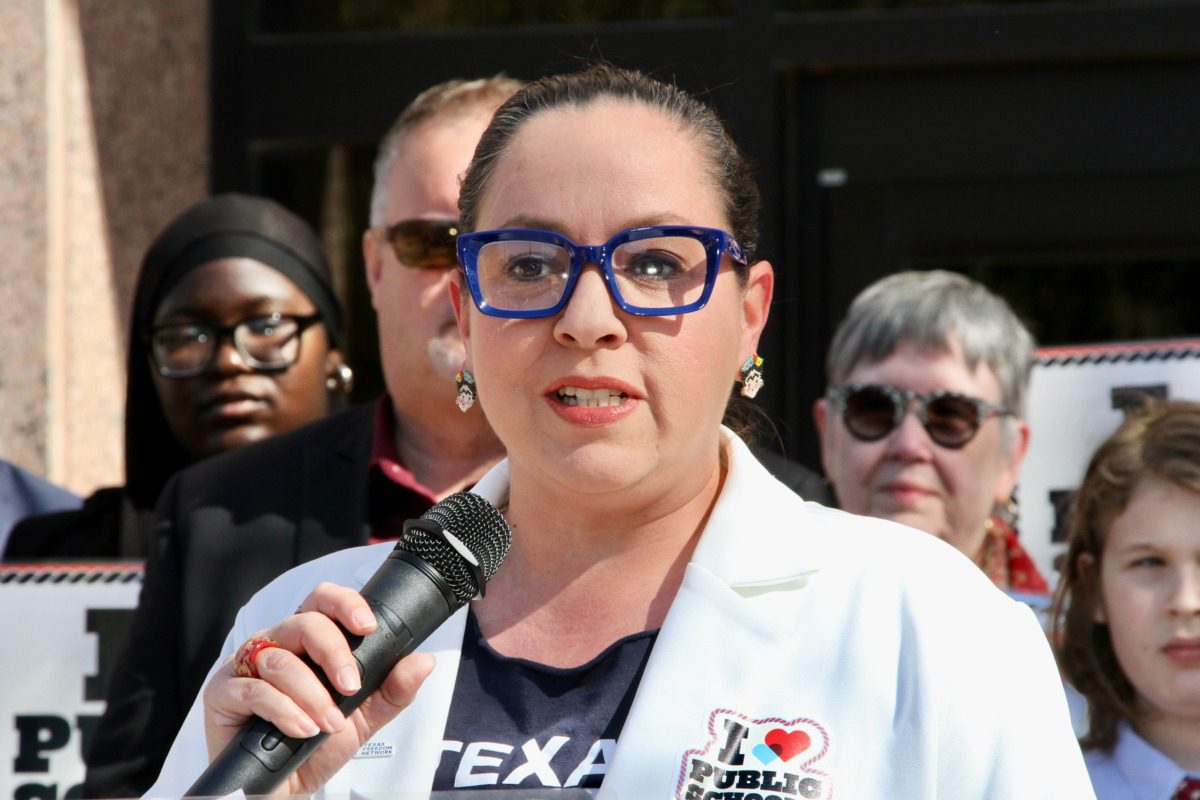
Felicia Martin, president and executive director of Texas Freedom Network, urged lawmakers to fully fund public schools instead of spending money on school vouchers. (Photo by Matt Hennie)
A Capitol rally and call from Trump
The legislative day opened with dueling events at the State Capitol — Abbott huddled with GOP House members and fielded a phone call from President Donald Trump while House Democrats joined a rally in the Capitol Rotunda with school voucher opponents.
Trump told Abbott it’s one of the most important initiatives he’s undertaken as governor.
“This is such a big day,” Trump told the lawmakers as Abbott broadcast the call on speakerphone.
“I know a lot of you are probably facing a little bit of pressure. I can’t imagine much because it’s such a Republican thing — the whole thing with school choice,” Trump said later in the call. “I want you to know that I totally have your back. I’m with you 100%.”
Trump also referenced his efforts to dismantle the US Education Department, telling lawmakers that it’s part of his effort to shift control of public education back to the state — yet the federal agency doesn’t operate local schools. The Texas Education Agency oversees public education in the state, which has 1,207 school districts operated by local school boards.
“We are moving it back to Iowa, we are moving it back to Texas, we are moving it back to all the states. So not only will you have school choice, the best of all, you’re going to be running your own education department,” Trump said.
In the Capitol Rotunda, voucher opponents chanted “no vouchers, fund our schools” during a rally organized by the Texas Freedom Network (TFN).
Felicia Martin, TFN’s president and executive director, criticized school vouchers as undermining public schools by diverting funding to private schools.
“We want fully funded public schools with engaged teachers, smaller class sizes, nurses and counselors who care for our kids, and an honest education that prepares every child for the future,” Martin told the crowd.
Talarico called the voucher proposal “a scam” that will bankrupt public schools in the state.
“Here in the Capitol, I am standing with my colleagues and with teachers and parents ready to throw down for our public schools today in the Texas House,” Talarico said. “Gov. Greg Abbott is trying to force his private school voucher scam through the House — a scam that will take our tax dollars and give those dollars to wealthy parents who are already sending their kids to private school.”
State Rep. Gene Wu, a Houston Democrat and chair of the House Democratic Caucus, said the rally was a call “to protect our public schools.”
“People know that this means we are going to defund our public schools,” Wu said. “People know that this means our local schools are going to close.”
Support Our Cause
Thank you for taking the time to read our work. Before you go, we hope you'll consider supporting our values-driven journalism, which has always strived to make clear what's really at stake for Texans and our future.
Since day one, our goal here at COURIER Texas has always been to empower people across the state with fact-based news and information. We believe that when people are armed with knowledge about what's happening in their local, state, and federal governments—including who is working on their behalf and who is actively trying to block efforts aimed at improving the daily lives of Texas families—they will be inspired to become civically engaged.






